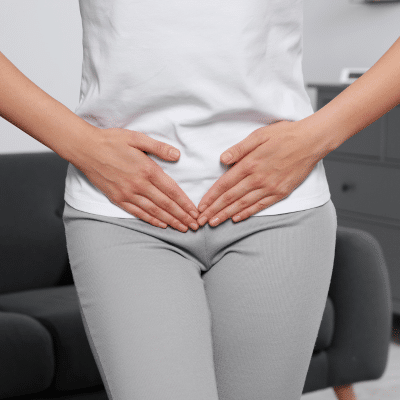 When it comes to women’s health, certain topics can often be overlooked or under-discussed. Among these is pelvic floor health, a vital aspect of overall well-being that can significantly impact a woman’s quality of life. At Women’s Health Services of Central Virginia, we’re committed to empowering women with knowledge and resources to prioritize their pelvic floor health. In this blog, we’ll delve into the importance of pelvic floor health, common issues that can arise, and steps women can take to maintain and improve their pelvic floor function.
When it comes to women’s health, certain topics can often be overlooked or under-discussed. Among these is pelvic floor health, a vital aspect of overall well-being that can significantly impact a woman’s quality of life. At Women’s Health Services of Central Virginia, we’re committed to empowering women with knowledge and resources to prioritize their pelvic floor health. In this blog, we’ll delve into the importance of pelvic floor health, common issues that can arise, and steps women can take to maintain and improve their pelvic floor function.
Understanding the Pelvic Floor
The pelvic floor comprises muscles, ligaments, and connective tissues, forming a supportive sling at the pelvis’s base. These muscles play a crucial role in supporting pelvic organs, including the bladder, uterus, and rectum, and are involved in various bodily functions, such as urination, bowel movements, and sexual activity. Maintaining optimal pelvic floor health is essential for preventing pelvic floor disorders and promoting overall wellness.
Importance of Pelvic Floor Health
Pelvic floor health is integral to women’s health and well-being at every stage of life. A strong and functional pelvic floor helps prevent pelvic floor disorders, such as:
- Urinary Incontinence: Weakness or dysfunction of the pelvic floor muscles can lead to urinary incontinence, the involuntary loss of urine. Stress urinary incontinence, urge urinary incontinence, and mixed urinary incontinence are common types of urinary incontinence that can significantly impact a woman’s quality of life.
- Pelvic Organ Prolapse: Pelvic organ prolapse occurs when pelvic organs, such as the bladder, uterus, or rectum, descend or bulge into the vaginal canal due to weakened pelvic floor support. Symptoms may include pelvic pressure, urinary or fecal incontinence, and discomfort during intercourse.
- Pelvic Pain: Chronic pelvic pain can result from various factors, including pelvic floor muscle dysfunction, inflammation, or nerve irritation. Conditions such as endometriosis, pelvic inflammatory disease (PID), and interstitial cystitis can contribute to pelvic pain and discomfort.
- Sexual Dysfunction: Pelvic floor dysfunction can affect sexual function and satisfaction, leading to issues such as decreased libido, pain during intercourse (dyspareunia), and difficulty achieving orgasm. Addressing pelvic floor health can improve sexual wellness and intimacy.
Tips for Maintaining Pelvic Floor Health
- Pelvic Floor Exercises: Performing regular pelvic floor exercises, also known as Kegel exercises, can help strengthen and tone the pelvic floor muscles. To perform Kegels, contract the muscles used to stop the flow of urine and hold for several seconds before releasing. Strive for three sets of 10 reps each day.
- Maintain a Healthy Weight: Excess weight can strain the pelvic floor muscles and increase the risk of pelvic floor disorders. Maintaining a healthy weight through a balanced diet and regular exercise can support pelvic floor health and overall well-being.
- Practice Good Posture: Proper posture can help alleviate pressure on the pelvic floor and promote optimal muscle function. Avoid slouching or sitting for prolonged periods, and practice pelvic alignment exercises to maintain a neutral spine position.
- Stay Hydrated and Eat Fiber-Rich Foods: Drinking an adequate amount of water and consuming fiber-rich foods can help prevent constipation and reduce strain on the pelvic floor during bowel movements. Incorporate fruits, vegetables, whole grains, and legumes into your diet to support digestive health.
- Seek Professional Guidance: If you experience symptoms of pelvic floor dysfunction, such as urinary incontinence, pelvic pain, or pelvic organ prolapse, don’t hesitate to seek professional evaluation and treatment. A healthcare provider specializing in women’s health can assess your symptoms, provide personalized recommendations, and offer treatment options tailored to your needs.
Request Your Appointment Today
Pelvic floor health is a vital aspect of women’s overall well-being that deserves attention and care. By understanding the importance of pelvic floor health, recognizing common pelvic floor disorders, and implementing preventive measures and lifestyle modifications, women can prioritize their pelvic floor wellness and enjoy optimal health and vitality. At Women’s Health Services of Central Virginia, we’re dedicated to empowering women with knowledge and support to take charge of their pelvic floor health. If you have questions or concerns about pelvic floor health, request an appointment today!

